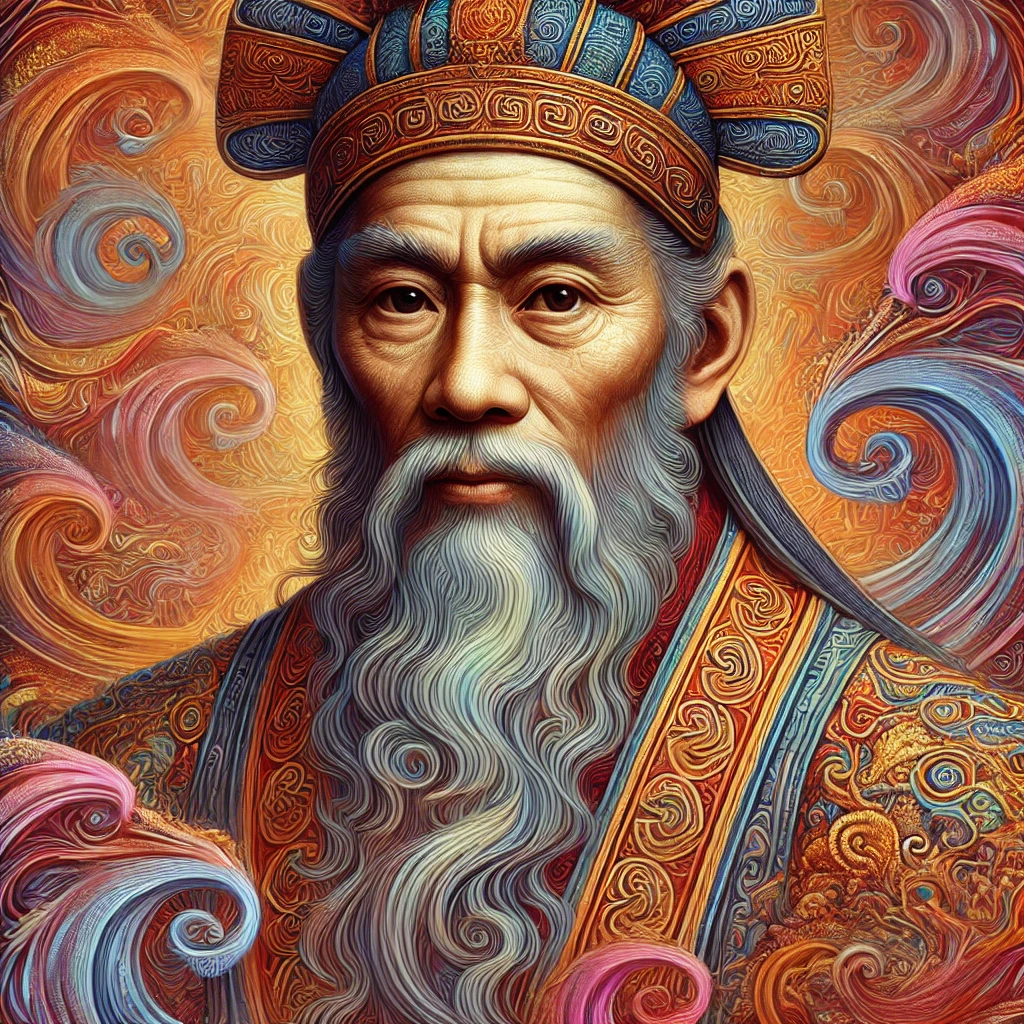Mencius

Birth Date: 372 BC
Death Date: 289 BC
Place of Birth: Zou, China
Place of Death: China
Century: 4th BC
Region: China
"The great man is he who does not lose his child's heart."
Born in the state of Zou during the Warring States period in China, Mencius was a philosopher and political thinker who followed in the tradition of Confucius. He traveled to various Chinese states, offering advice to rulers on governance and morality, and his collected teachings are preserved in the book 'Mencius.'
Mencius believed that people are naturally good and that this goodness can grow through learning and proper behavior. He thought that leaders should be kind and fair, setting a good example for others to follow.
The Mencius: A compilation of the teachings and conversations of Mencius, one of Confucius' most prominent followers. The text explores human nature, the role of government, and the importance of benevolent leadership.
Mencius was heavily influenced by Confucius, whom he regarded as the greatest teacher of moral philosophy. He was also inspired by earlier Chinese thinkers, especially those who promoted the importance of virtue and humaneness in governance.
Mencius’ interpretation of Confucianism has had a lasting influence on Chinese philosophy, especially in its emphasis on moral education and virtuous leadership. His ideas have shaped Confucian thought for centuries and continue to influence ethical and political discussions in East Asia.
Mencius’ belief in the inherent goodness of human nature was controversial, as it contrasted with the more pessimistic views of thinkers like Xunzi, who believed that human nature was inherently selfish and needed to be controlled.
Xunzi was a prominent critic of Mencius, arguing that human nature is fundamentally bad and that moral education is needed to suppress natural tendencies. Other critics questioned whether Mencius' optimism about human nature was realistic given the political turmoil of his time.
Mencius' teachings on the goodness of human nature and the importance of virtuous governance have had a profound impact on Confucian philosophy. His ideas continue to be influential in East Asian ethics and political philosophy, particularly in discussions on leadership and moral responsibility.
Mencius famously used the analogy of a child falling into a well to illustrate the natural compassion of human beings, arguing that people instinctively feel concern for the child’s welfare, showing the innate goodness of human nature.




